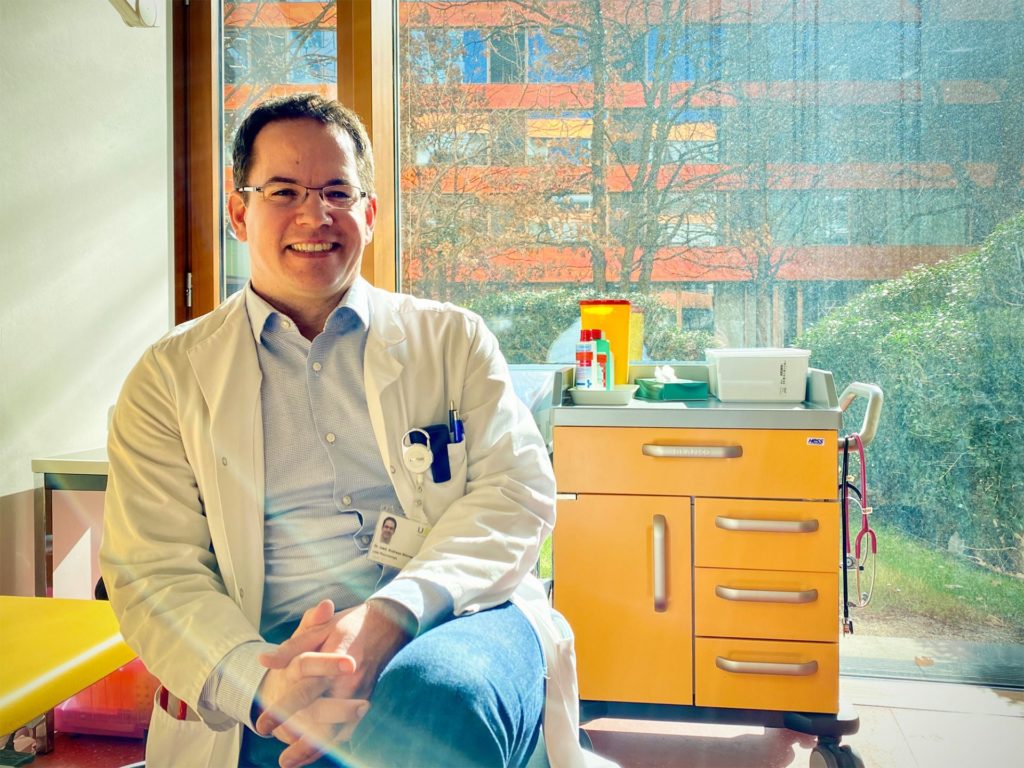Contact us
High contrast
This page has been translated automatically.
A layperson would probably not suspect rheumatism in children. Dr Andreas Wörner specialises in precisely this. He would like to use this experience to coordinate the establishment of a university centre for rare diseases in Basel. His essay on International Rare Disease Day shows why this is important.

"Why me?" - In my Rheumatology consultation for children and adolescents I come across this fundamental human question again and again. These are rare diseases that I deal with on a daily basis. This is a complex area for us doctors. It can be even more difficult for affected families to have to live with it.
The agenda fills up with appointments. Medical check-ups, medication, physiotherapy. Plus all the administration. Money worries. The whole family rhythm gets mixed up. There is often hardly any time in the first few months to deal with the illness on the side. And then, when the course for the new everyday life has been set to some extent: "Why is this happening to us now? A rare disease!"
The parents feel almost more offended than the children and young people concerned. Because it's also unfair. So much commitment to ensure that the child is doing well, that everything is perfect - and then it's not. Or more precisely: it doesn't seem that way.
I have seen families break up because of this. Many feel alone. We absolutely have to listen carefully beforehand. Take our time. Time is probably the most important thing. So that we can take the wind out of the sails of despair. To make families realise that they are not alone. There is a net that catches them. Other people affected by a rare disease. But also simply those who can support them professionally and accompany them on their journey.
During the consultation, I spend a lot of time finding out what support a family needs in their everyday lives. What is really necessary? What would be too much and possibly make the child sicker than it actually is? The aim is to make everyday life as easy as possible.
In addition to the consultation, I then coordinate the relevant appointments and contacts, from therapies to patient organisations. And I'm there to answer questions, whether on the phone or by e-mail. It's a lot of work. But it gives me the feeling that I can really help families in their difficult, highly individualised situation. Nevertheless, I am delighted that we at the UKBB have a Care Management very experienced social workers. They support me and have excellent networks in the region of north-west Switzerland.
Working in networks is the key to the best possible care, especially for rare diseases. From a medical point of view, diagnosis is sometimes unthinkable without a functioning network. In Switzerland, a disease is considered rare if it affects fewer than one in two thousand people. To date, this applies to seven to eight thousand diseases. And new ones are discovered every year.
How do you recognise the right clinical picture from so many clinical pictures? Imagine a jigsaw puzzle. If it is a very simple puzzle, you can already guess the finished picture when the first three or four pieces have been laid out. If we are dealing with a rare disease that occurs perhaps twenty or thirty times per eight million inhabitants, then it's like sitting in front of a difficult puzzle. Except that we don't even know how many pieces the puzzle consists of. That's why some sufferers unfortunately have to wait a painfully long time before we can name their disease.
In order to recognise the picture as quickly and precisely as possible, the view and expertise of several specialists from different disciplines and hospitals in Switzerland is required. And they in turn rely on structures that enable the best possible exchange between them. So that they can work on a case at the same time, on site or virtually, without the patient's family having to be sent from doctor to doctor and, in the worst case, having to listen to contradictory statements.
The Rare Diseases Network Northwest and Central Switzerland is designed to do just that. It brings together specialists from UKBB, University Hospital Basel and the cantonal hospitals of Baselland, Aarau and Lucerne. Together, we can help people of all ages - be it with the diagnosis of a suspected rare disease, with finding the right specialists or with day-to-day care. And all of this competently and close to home. This is as important as the diagnosis itself. We should always ensure that a patient's family has to travel as little as possible. It makes their everyday life much easier.
Switzerland wants to include all patients in its healthcare system. People with rare diseases should also receive the attention they need. The political will is there to fulfil this high ideal. However, much remains to be done at all levels.
We should always make sure that a patient family has to travel as little as possible. It makes their everyday life much easier.
In Basel, we are particularly well placed to help when a rare disease manifests itself in an as yet unknown form or does not yet have a name. The UKBB and the University Hospital Basel work side by side with research and genetics. This means that we can also use an experimental method to clarify a suspected rare metabolic disease in the laboratory. We can use a highly individualised, research-based approach to continue the investigations in such a way that it leads to either a new or a rare diagnosis. In short: we can also really get to the bottom of unclear complaints.
This specific expertise as university centre we bring into the Rare Diseases Network even more strongly. In the hope that this will give even more patients access to highly specialised medicine that will take them one step further.
"Why me?" - As a doctor who often comes into contact with rare, serious, chronic diseases, I see time and again how those affected find a positive way of dealing with their fate and transform the original question: "Me, with all my facets!" - A powerful self-confession.
These families show me time and time again that the goal is not for a person to be perfect. That is not the essence of life. You can also be happy with a rare disease. And those who are happy will also feel healthy. No matter what they have.
As a society, however, we have a responsibility in this regard. And that's why I'm personally delighted that politicians are increasingly recognising the benefits of us medical professionals thinking and acting in networks. That it is a great achievement to work hand in hand with specialists from all disciplines and organisations to meet the special needs of these people.
This network thinking also relativises the importance of the doctor in the whole process. Because it takes much more than the ability to make a difficult diagnosis. We absolutely must continue to promote this development. So that families can survive in their everyday lives and find their own individual path despite a rare illness.

7,000 to 8,000 diseases are considered rare. This is the case if the disease occurs in fewer than one in two thousand people. Worldwide, 350 million people are affected by a rare disease. In Switzerland, the Federal Office of Public Health estimates that 350,000 children and adolescents are affected. Rare diseases account for around a third of all cases at the UKBB Polyclinic. In adults, the figure is currently between five and eight per cent. This figure is set to rise in the coming years due to advances in the diagnosis and treatment of children and adolescents with the disease.
058 387 78 82 (Costs are settled via the health insurance company)
In the event of an emergency abroad, call the emergency number of your health insurance company. You will find the contact details on your health insurance card.
145 (Poison and Information Centre)
University Children's Hospital of both
Basel, Spitalstrasse 33
4056 Basel | CH
Phone +41 61 704 12 12
© UKBB, 2025
The Medgate Kids Line provides quick and uncomplicated medical advice if your child is unwell. The medical team of our partner Medgate is available to you by telephone around the clock.
For emergencies abroad: Call the emergency number of your health insurance company. You will find this number on your health insurance card.
More information: On the Page of the emergency ward you will find everything you need to know about behaviour in emergencies, typical childhood illnesses and waiting times.
144 Outpatient clinic
145 Tox Info Suisse (Poisonings)
117 Police
118 Fire brigade
Which topic would you like to contact us about?
For praise or criticism, please use the Feedback form.